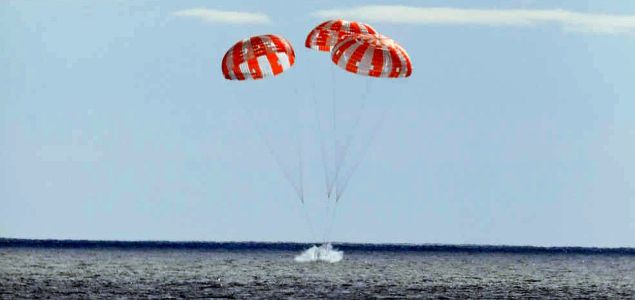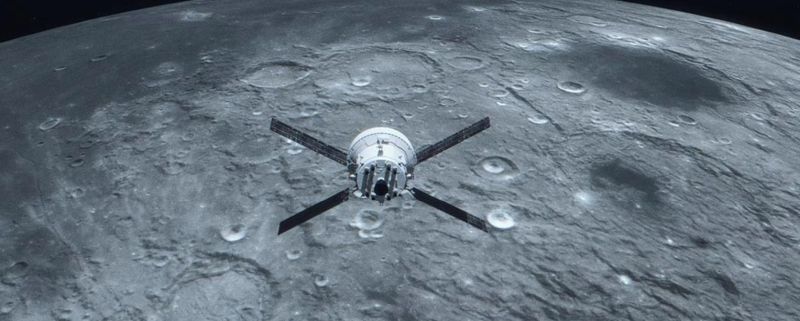
Historic moon mission: Artemis I test flight deemed huge success as Orion splashes down in the Pacific

NASA’s Orion spacecraft splashed down in the Pacific Ocean, west of Baja, California, at 9:40 a.m. on Sunday, December 11, after a record-breaking mission, traveling more than 1.4 million miles on a path around the Moon and returning safely to Earth, completing the Artemis I flight test.
Yesterdays’ splashdown marked the final milestone of the Artemis I mission that began with a successful liftoff of NASA’s Space Launch System (SLS) rocket November 16, from Launch Pad 39B at NASA’s Kennedy Space Center in Florida. Over the course of 25.5 days, NASA tested Orion in the harsh environment of deep space before flying astronauts on Artemis II.
“The splashdown of the Orion spacecraft – which occurred 50 years to the day of the Apollo 17 Moon landing – is the crowning achievement of Artemis I. From the launch of the world’s most powerful rocket to the exceptional journey around the Moon and back to Earth, this flight test is a major step forward in the Artemis Generation of lunar exploration,” said NASA Administrator Bill Nelson. “It wouldn’t be possible without the incredible NASA team. For years, thousands of individuals have poured themselves into this mission, which is inspiring the world to work together to reach untouched cosmic shores. Today is a huge win for NASA, the United States, our international partners, and all of humanity.”
During the mission, Orion performed two lunar flybys, coming within 80 miles of the lunar surface. At its farthest distance during the mission, Orion traveled nearly 270,000 miles from our home planet, more than 1,000 times farther than where the International Space Station orbits Earth, to intentionally stress systems before flying crew.
During the flight test, Orion stayed in space longer than any spacecraft designed for astronauts has done without docking to a space station. While in a distant lunar orbit, Orion surpassed the record for distance traveled by a spacecraft designed to carry humans, previously set during Apollo 13.
“Orion has returned from the Moon and is safely back on planet Earth,” said Mike Sarafin, Artemis I mission manager. “With splashdown we have successfully operated Orion in the deep space environment, where it exceeded our expectations, and demonstrated that Orion can withstand the extreme conditions of returning through Earth’s atmosphere from lunar velocities.”
In the coming days, Orion will return to shore where technicians will offload the spacecraft and transfer it by truck back to Kennedy. Once at Kennedy, teams will open the hatch and unload several payloads, including Commander Moonikin Campos, the space biology experiments, Snoopy, and the official flight kit. Next, the capsule and its heat shield will undergo testing and analysis over the course of several months.
Artemis I was the first integrated test of NASA’s deep space exploration systems – the Orion spacecraft, SLS rocket, and the supporting ground systems – and was supported by thousands of people around the world, from contractors who built the spacecraft and rocket, and the ground infrastructure needed to launch them, to international and university partners, to small businesses supplying subsystems and components.
Through Artemis missions, NASA will land the first woman and the first person of color on the surface of the Moon, paving the way for a long-term lunar presence and serving as a steppingstone for astronauts on the way to Mars. Learn more about Artemis I by visiting the NASA website.
Catch yesterday’s return to Earth and Orion splashdown as it occurred live in the video below,
(Source: NASA)
Posted by Richard Webster Ace News Today / Follow Richard on Facebook and Twitter






